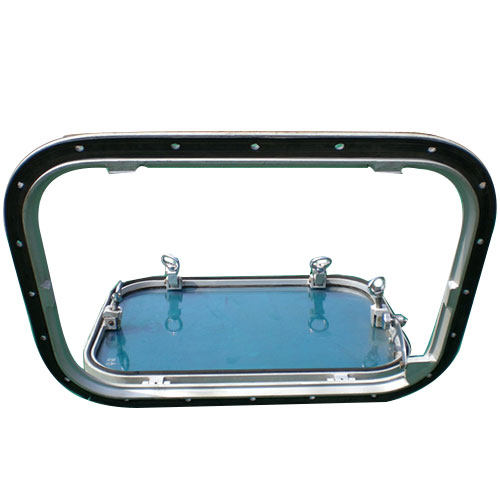The effects of climate change on marine environments have become increasingly evident, reshaping marine ecosystems and the vital "windows" they provide into the underwater world. From coral reefs to polar seas, these repercussions alter ecosystems in significant ways, emphasizing the crucial role of marine windows in our understanding and preservation of oceanic health.

The Vital Role of Marine Windows in Ecosystems:
Marine windows serve as metaphorical portals into the intricate underwater world, playing a pivotal role in scientific research and serving as indicators of oceanic well-being. These windows, including coral reefs, polar ice caps, and coastal regions, offer insights into the health of marine ecosystems.
Climate Change's Impact on Marine Windows:
1. Coral Reefs: Fragile Ecosystems Under Pressure
Coral reefs, renowned as the rainforests of the sea, support a vast array of marine life. However, climate change-induced stressors threaten their existence:
Temperature Stress: Rising sea temperatures trigger coral bleaching, weakening corals and increasing susceptibility to disease.
Ocean Acidification: Increased carbon dioxide absorption leads to acidification, hindering coral growth and reef formation.
Extreme Weather Events: Intensifying storms cause physical damage to coral reefs, further exacerbating their degradation.
2. Polar Regions: Melting Ice and Shifting Landscapes
Polar regions experience rapid transformations due to global warming:
Loss of Sea Ice: Shrinking Arctic sea ice imperils species reliant on it, such as polar bears and seals.
Thinning Ice Sheets: Warming temperatures in Antarctica contribute to ice shelf thinning and glacier retreat.
Altered Ecosystem Dynamics: Disruptions in ice cover and temperature regimes destabilize polar ecosystems, affecting marine life and food webs.

3. Coastal Zones: Frontlines of Human-Induced Changes
Coastal areas face escalating threats from climate change and human activities:
Sea Level Rise: Coastal flooding and saltwater intrusion endanger communities and ecosystems.
Habitat Loss: Development, pollution, and overfishing degrade critical marine habitats.
Ocean Pollution: Climate change exacerbates ocean pollution, disrupting marine ecosystems and compromising water quality.
Strategies to Mitigate Climate Change's Impact on Marine Windows:
Addressing climate change's impact on marine ecosystems requires a comprehensive approach:
Reduce Greenhouse Gas Emissions:
Transition to renewable energy sources and implement energy efficiency measures.
Foster international cooperation to limit carbon emissions.
Protect and Restore Marine Ecosystems:
Establish marine protected areas and adopt sustainable fisheries management practices.
Support habitat restoration efforts to enhance ecosystem resilience.
Adaptation Strategies for Vulnerable Ecosystems:
Develop tailored adaptation measures for vulnerable ecosystems, such as coral reefs and polar regions.
Invest in research and monitoring to inform adaptive management strategies.
Reduce Coastal Vulnerability:
Implement coastal management strategies and sustainable land-use planning to mitigate coastal erosion.
Promote community-based approaches to climate resilience-building and ocean governance.
Enhance Ocean Governance and International Cooperation:
Strengthen governance frameworks and foster collaboration among stakeholders for sustainable ocean management.
Support initiatives that integrate climate considerations into marine policy and planning processes.

Conclusion:
Climate change poses profound threats to marine ecosystems, as evidenced by the impacts observed through coral reefs, polar seas, and coastal zones. Protecting these critical ecosystems requires concerted efforts to mitigate climate change and adapt to its consequences. By safeguarding marine windows, we safeguard the biodiversity and ecological integrity of our oceans, ensuring a sustainable future for generations to come.







